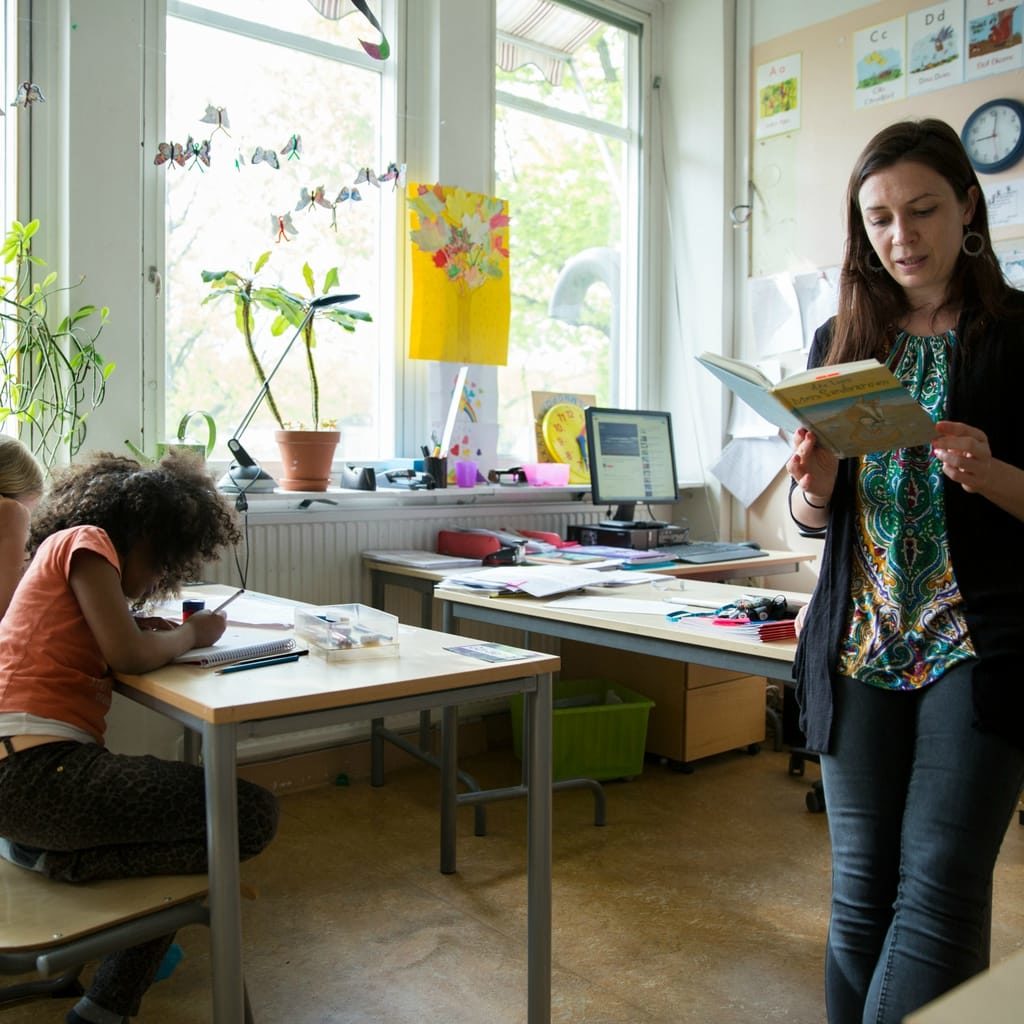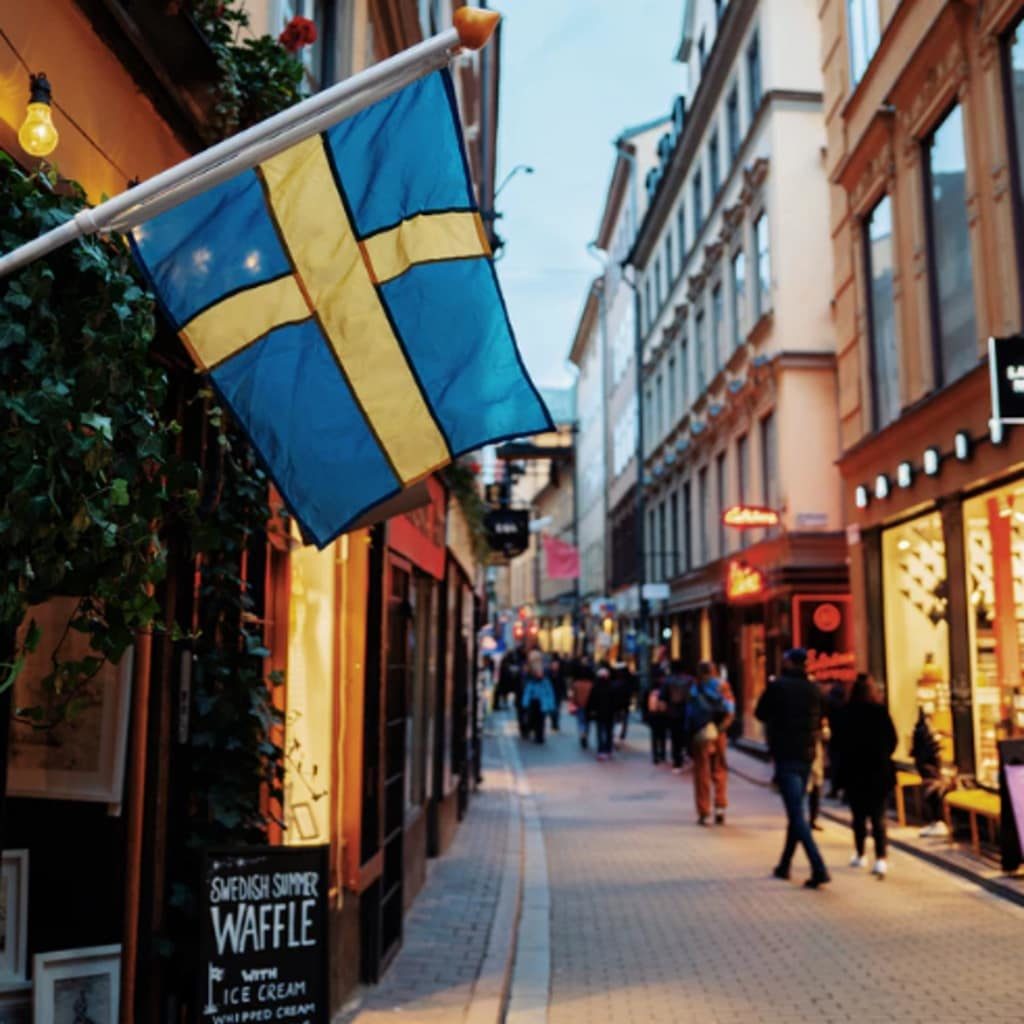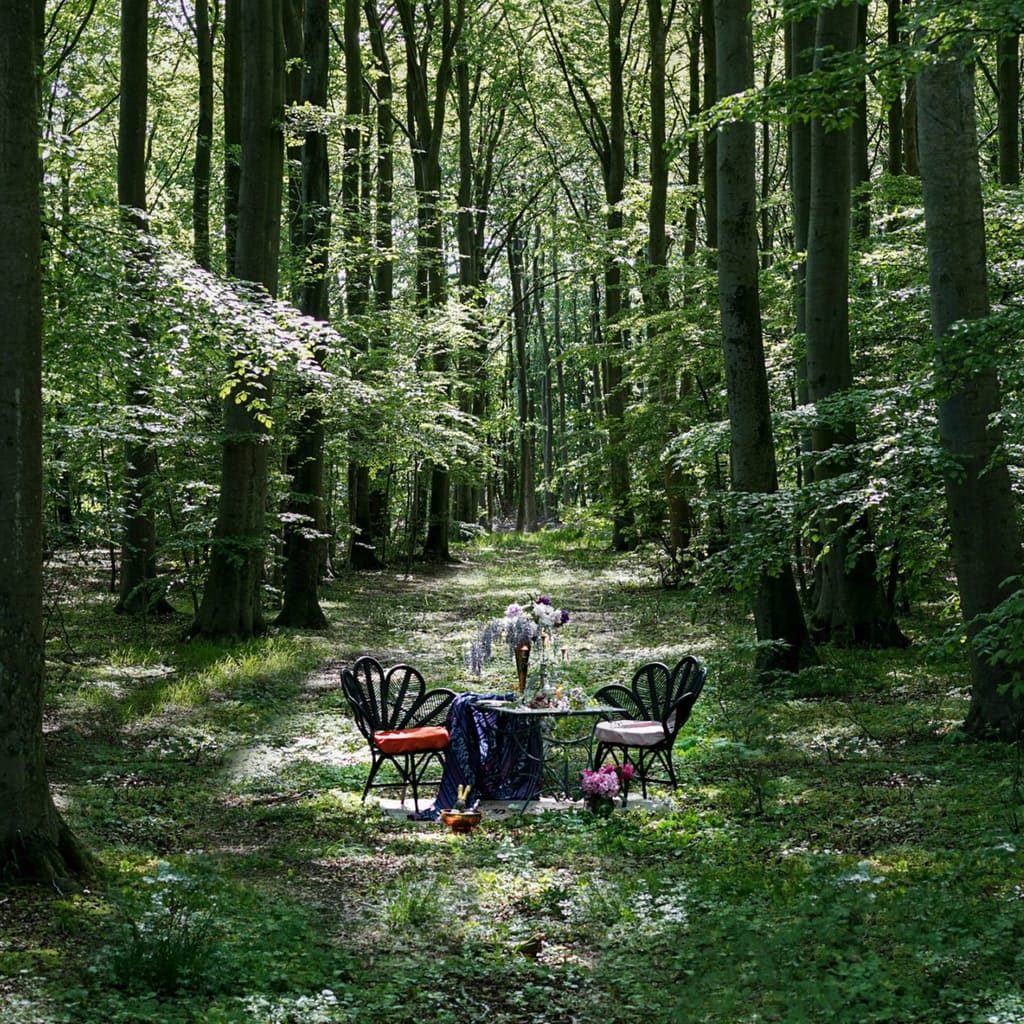Every time the annual World Happiness Report is released, the Scandanavians are always up there in the top 5. The data for the report comes from The Gallup World Poll questionnaire, where citizens answer a variety of questions in 14 categories ranging from health, politics, education, work, and environment. These life factors determine a country’s overall happiness, and ever since 2013, Finland, Iceland, Denmark, Norway, and Sweden have held their spots in the top 10.

These Nordic Scandinavians have got this crazy little thing we call life nailed, but what is it that makes their lives so happy? Ikea? Abba? It has to be deeper than that.
Let’s take a look at some crazy facts about life in Sweden that will surprise you. Those Swedes really know what they’re doing. Read on to find out just exactly how they make their country a ‘Home Swede Home.’
In order to make the reading experience of this article more convenient, the article has been split up into multiple pages. At the end of each page, you will see a “next” button which will take you to the next page. Enjoy your reading!
[adace-ad id=”6906″]
No.1 for Patents – Now That’s Music to our Ears
Despite being only the 15th largest country by population in the European Union, Sweden is no.1 for patents. Why? There is a huge focus on technology and innovation. Crazy fact: Did you know that Spotify was made in Sweden? It was founded in 2006 by Daniel Ek and Sven Hans Martin Lorentzon.

[adace-ad id=”6906″]
Netflix is the only company in the world to add subscribers faster than Spotify.
There are many other practical and well-designed Swedish discoveries, these include the pacemaker, the tetra pal, the 3-point seatbelt, oat milk, the walking frame, the pipe wrench, and of course, Skype which later got sold to Microsoft.
Living The Green
Sweden is a green-friendly country and ranks 5th on the Global Environmental Performance Index. There are low carbon dioxide emissions and effective use of renewable energy sources. Check these figures out only 1% of trash ends up in landfills, 47% gets recycled, and 52% is used to create energy.
[adace-ad id=”6906″]

The nation is so “Swede” at converting trash into treasure (energy) that they also import other countries’ trash. Sweden is super sustainable in terms of its social and environmental ways and was the first country to pass environmental law in 1967. An active advocate for climate change, Sweden sets the bar for other countries to follow.
Yes Sir, No Sir
Sweden is very people-oriented, and regardless of professional statuses, everyone must be addressed by their first name. Teachers go by their first names. No more “Yes Sir, No Sir” or “Mr Andersson”, you can just call them Lars. This removes any levels of hierarchy and keeps everyone equal.
[adace-ad id=”6906″]

This isn’t due to a lack of respect, but more of a reflection of Swedish social practices. This egalitarian country got rid of the Mr and Mrs “insert surname” practices back in the 60s. They believe this creates a more open and connected environment both at work and at school. Everyone is together on the same level.
Honesty is the Best Policy
In Sweden, if you leave your phone in a coffee shop, you can be sure that someone will hand it in. Or if you drop something on the street, a Swede will follow you and return it. The Swedes have got your back.
[adace-ad id=”6906″]

Honesty and sincerity are important morals to have and they form the basis of daily Swedish life. There is no false sense of pretense, just genuineness, and sincerity. Swedish staff has even been known to tell their customers that the product exists cheaper in another store. Now that’s what we call honesty!
No Small Talk, Thanks
General tourist small talk like, “How are you?” and “Isn’t this weather great?” which flies in the States and the UK, doesn’t fly so well in Sweden. Swedes love their privacy and rarely engage in banal small talk. The talk should be big and meaningful, and not small for the Swedes.
[adace-ad id=”6906″]

Small talk is seen as futile to the time-efficient Swedes and they call it kallprat (cold talk) or dödprat (dead talk). Often, they avoid eye contact in order to stay clear of an awkward and unnecessary conversation with a stranger. For them, the purpose of talking is to exchange important information, and not to idle chit-chat.
Nothing Personal
Personal and private space must be fully respected in Sweden. Curious questions about someone’s family and work, which would be considered as interest in other cultures, are seen as rude in Sweden. Swedes like to keep their personal details to themselves.
[adace-ad id=”6906″]

Oversharing or TMI- Too Much Information doesn’t exist in Sweden. They keep things simple and only share things with their closest friends. In Sweden, a stranger doesn’t need to know your whole life story. You met them once and then that’s it. So don’t take it personally if they don’t want to get personal. It’s just their culture.
Just Get To The Point
Swedes value their time and they expect the feeling to be mutual. They cut out all the small talk so that when they actually do engage in conversation it will be meaningful. Direct and concise is the sweet Swede way to converse.
[adace-ad id=”6906″]

Swedes don’t just talk to fill the void of silence; they talk because they have something important to say. A conversation should be meaningful and not just gossip. So if you find yourself in a conversation with a Swede, no need to beat around the bush, just say what you mean and get straight to the point.
Hard To Make Friends
Integrating with the locals can be hard in Sweden, even if the physical move of relocation is easy. Swedes have needed to respect their privacy, personal space, and don’t engage in small talk. This makes it difficult for strangers to become friends.
[adace-ad id=”6906″]

Swedes are very meticulous about who they let into their lives, so true friendships can take a lot of time and patience. However, if you stick to direct and concise conversations whilst maintaining politeness and respecting their need for privacy, there is a chance you may make a Swedish bestie for life.
Hobby Friends
What better way to make friends than doing shared interests? You guys already have stuff in common and can practice and grow from one another. In the UK, a good way to make friends is in the pub, but in Sweden, this is not the case.
[adace-ad id=”6906″]

In Sweden, there is a huge emphasis on fitness and personal health. Swedes take care of their general well-being and understand the need to be healthy. So if you are looking to make friends, we recommend hitting the gym and finding a gym buddy. “Do you even lift?” Might be a good opener.
Hard to Find a Crib
High property prices in Sweden make apartment hunting – whether to rent or buy super tricky. In the capital, Stockholm salaries tend to be higher and more relative to the cost of living. Property prices increase every year by 1%.
[adace-ad id=”6906″]

Stockholm and Gothenburg are the most expensive cities, however, the suburbs can offer slightly lower prices. You will have to join a waiting list for rental properties, a queue that is so long that it is being considered for inclusion in the Guinness Book of Records. It takes an average of 9 years to bag yourself a rent-controlled property. Also, the fact Sweden has a lot of single-person properties means flat-sharing is out of the option, adding to the property shortage.
Keep It Clean
Due to the shortage of property in Sweden, finding yourself a property is difficult, but finding yourself property with a private washing machine…? Dream on. People say it is easier to get your hands on a Volvo and Volvo (dog) than to own your own washing machine.
[adace-ad id=”6906″]

Because of this, there are laundromats all over Sweden enabling citizens to keep their clothes clean and keep hold of the limited space in their apartments. These essential machines to daily Swedish life are very popular and because of the influx of users, have some strict rules. There are limited-time uses and you should clean the machine after use.
No Paper Money
In 1661, Sweden was the first country in Europe to use cash and will be the first to go cashless by 2023. According to the Swedish Central Bank, 80% of Swedes use cards, of which 58% are payments; and 6% are cash.
[adace-ad id=”6906″]

Mobile Apps designed specifically for a cashless life, i.e iZettle are very popular amongst Swedes. Banks issue cards (with parental approval) to children aged 7 + so that these future generations can play a part in a cashless world. Banks also don’t give cash, you need to go to an ATM to make a deposit or withdraw.
Short Summer Hours
Summer vacation in Sweden from school lasts 10 weeks, starting the week before midsummer and ending mid-August, 8 weeks after. Due to the encouraged summer vacation, a lot of businesses will close, and enjoy the extra hours of Swedish summer daylight.
[adace-ad id=”6906″]

Due to this mega vacation, restaurants will be closed from July and August. Please make sure you’re aware of this before you book your summer vacation. Tourists should note that on Saturdays, most shops close at 5pm, and on Sundays, they’re completely closed. Swedes really put effort into their work and life balance.
Butter Fingers or Knives?
Swedes take the concept of butter knives to the next life with their nifty little invention, the Smörknif. This little wooden gadget was invented in the 1950s, and is usually manufactured at home or at craft day at school.
[adace-ad id=”6906″]

These special knives have no sharp edges and are made from wood or plastic. Don’t worry if you can’t make it to Sweden to buy one, they’re available online. We recommend you soak them in mineral oils first to stop the buttery oils from staining the wood. Say goodbye to butterfingers, and hello to the Smörknif.
The Last Slice
“Eat up all your dinner, or you won’t get any dessert” was the message in my household growing up. The plate must always be clean, and any food not eaten was seen as waste. However, in Sweden the culture is to always leave the last slice.
[adace-ad id=”6906″]

Why? Well basically, the Swedes are a humble bunch and would never assume that they’re entitled to the last cookie. The general protocol is to wait 15minutes and then ask nicely if no one wants it. Then and only then it can be yours- albeit with some side-eyeing from the table.
Long Live Lingonberries
Lingonberries are relatives of blueberry and cranberry- though we don’t often see them in the U.S. They’re a deep ruby red in color and rich in antioxidants, magnesium and vitamins A and C. Their sweet and sour taste makes for tasty jams, syrups and sauces.
[adace-ad id=”6906″]

In general, lingonberries are not cultivated for mass fruit consumption, so if you find some you should snap them up. Naturally, their price reflects their harvest, so they’re not cheap. Also, because of their acidic properties, they can be preserved for months in a jar of water at room temperature. Lingonberry-picking is also a favorite amongst Swedish children.
A Fine Line
Each country has its own rules about forming a line to receive a service. Some countries have a first-come-first-serve basis, and in other places, you have to push in to be served. However, in Sweden, you must respect the line culture.
[adace-ad id=”6906″]

It is common courtesy to form the back of a line and wait patiently to be served, without complaining. This is a form of mutual social respect in Sweden. There are some businesses that employ a ticketing system, however, it is almost redundant giving the ubiquitous consensus to the line.
Watch Your Volume
Swedes have superhuman patience. Not only have they nailed the line system, they’re also able to stay calm in an argument. Raising your voice is seen as rude and unnecessary. There is never a need to shout, people should be able to be heard without raising their volume.
[adace-ad id=”6906″]

Unlike some countries, Swedes are generally soft-spoken and are advocates of “lagom”- balance, or “just the right amount”. Screaming or raising your voice in Sweden is a big no-no, even if you can’t contain your excitement. There is a Finnish proverb which they have also adopted, “Talking is silver, but silence is gold”. Sounds golden to us!
Rock Your Socks Off
Entering someone’s house in a different country can be difficult. Do you keep your shoes on, do you take your shoes off? What is the protocol? In Sweden, you shouldn’t just remove your shoes entering someone’s house, but also when entering the office.
[adace-ad id=”6906″]

There are specifically designed shoe shelves underneath the coat racks called sko hylla. You can find these in every home and office. This important removal of shoes means that you need to have a snazzy pair of socks. We say “Rock your socks off!” and maybe your pair of socks will be the talk of the room.
Punctual
Given their very practical and functional culture, it comes as no surprise that Swedes are never late. It doesn’t matter if you have an official doctor’s appointment, or an informal meeting with your best friend, lateness is frowned upon in Sweden.
[adace-ad id=”6906″]

However, arriving too early is also not so wise, as it gives the impression that you’ve been waiting for someone to arrive which can make things get a little awkward. The best thing to do is simply ensure your watch is on time and to keep an eye on it.
Sounds Like A Plan
Not only are the Swedes punctual and practical, but they are also masters at planning, filling their diary with dates months in advance. Their super organizational skills are on fire, and this showing-up-and-winging-it attitude that works in some countries does not fly with them.
[adace-ad id=”6906″]

These planning skills also explain why their economy is up there. Socially friends will make group activity bookings months in advance. This way you can be sure who is coming and you can all have something to look forward to. Spontaneity is not Sweden’s forte, practical and organized is always the way.
CEO Tea Please
In Sweden, everyone is seen at eye level, and this “No Hierarchy” philosophy extends all the way up to the CEO. Just because they have a higher position than you does not mean that you should be treated with lesser respect.
[adace-ad id=”6906″]

In fact, it is not uncommon to find your CEO making cups of tea for their colleagues. “One big boss of coffee please.” This behavior unites colleagues and bosses, adding to the company unity. Team building is a big part of the Swedish workforce, and very often, the big bosses will join in on post-work activities. “Teamwork can make a dream work”, or so we’ve heard.
Pre-Meetings
Swedes love a good meeting. There are even pre-meetings. Yes, that’s right. Meetings about meetings. This is the time when the Swedes get to directly communicate and productively converse, without the idle chit-chat. People are encouraged to voice their opinions whilst maintaining Swedish conversational etiquette.
[adace-ad id=”6906″]

This means no shouting but respecting and valuing the opinions of your colleagues. Offices are usually open-planned and not isolated, which creates greater collaborations and work harmony. Since respect is key in Sweden, you can guarantee that if you speak directly but politely without raising your voice, your opinion will be heard and noted.
Personal Info. Everywhere
So we already know that Swedes have a need for privacy. No need to start sharing your life story with the stranger on the bus. However, despite this, all Swedes’ personal details such as their telephone number and email are easily accessible online.
[adace-ad id=”6906″]

In other cultures, in order to reach the CEO, you have to go through the main office, a secretary, or a personal assistant. In Sweden, due to their “no hierarchy” approach, cold calling that highly coveted CEO is welcomed. Another random fact is Sweden is the first country in the world to have a telephone number.
5pm – We’re Closed, Sorry
“Lagom”- the balance of work and life is the main basis of Swedish culture ingrained into its citizens. Too much work and not enough play, or family time can be harmful. The Swedish government officially made the average workweek 40 hours.
[adace-ad id=”6906″]

A typical workday begins at 8.30 am or 9.00 am with an hour lunch from 11.30 am until 1.30 pm. Work finishes at 5 pm and when we say finish, everyone is out of the office. There is no need to stay longer to prove your diligence in Sweden, it is viewed as unnecessary and an example of poor planning and time management. Hi, 5- we out guys!
Fika – The Swede Secret
We all love coffee, and luckily for the Swedes, drinking coffee is an integral part of their culture. They call it “Fika”. Offices will integrate it into their daily schedules as a chance for colleagues to socialize informally and of course, drink coffee.
[adace-ad id=”6906″]

Fika is a break away from your desk without your phone, even if you have that pressing deadline. It is a time to take a proper, well-deserved break to slow down for a moment. Copious amounts of black coffee are consumed, surprising those first time Fika-virgins. A scheduled coffee break without your phone by order of your boss? Don’t mind if we do.
Swede Maternity AND Paternity Leave
Given birth and worried about hurrying back to work to provide for your child? Stressful, right? Well in Sweden, there is no need to rush back to work. Parental leave (based upon your income) is a generous 480days divided between both parents.
[adace-ad id=”6906″]

Both mother and father have a right to 90 days’ leave, after which the days can be alternated between them. By contrast, paid maternity leave is only 12 weeks in the USA. The Swedes fully understand the needs of a working parent and take this into consideration. Family time is of the utmost importance to them and they respect both the maternal and paternal roles.
Paid For Looking After Your Sick Child
As parents, we worry about our child’s health. If our child is sick, we often use up our work holidays to look after them which can prove detrimental to our wage. But don’t worry, Sweden has got all you parents covered.
[adace-ad id=”6906″]

Sweden understands that the balance between being a parent and a worker is not an easy one. Therefore, they implemented laws to accommodate these working parents. For example, should your child be sick and you have used up all your holidays, you will still receive 80% of your paycheck. This helps lighten the load for working parents.
Vacation Station
Sweden understands the need to take a break, their daily Fika culture and their long summer vacations. Vacation days come in at 33 days- the highest number in Europe, something that Americans and fellow EU country members can only dream of.
[adace-ad id=”6906″]

In contrast, the U.S only has two weeks of vacation days and the E.U 25.2 days. Swedes are encouraged to take a full four weeks of vacation, which explains the summer closure of businesses. Bosses know that their employees will return refreshed and more productive after a long, well-deserved break. “So take the four weeks, and enjoy- it’s on us.”
6-Hour Days
Recent studies have shown that workers are only truly productive for 6-hours a day. Sweden being the revolutionary country that it is, decided to put this study to the test with a two-year, 6-hour day experiment. The results were very interesting…
[adace-ad id=”6906″]

Results noted that health and productivity increased because of the 6-hour workday, but it faced criticism about costs. Also, what was interesting to note was the fact that improving your work-life was not necessarily connected with improving your working hours. Maybe the solution is just to do away with work all together? Who’s with me?! Anyone?
Let Kids Be Kids
Swedes understand that kids don’t want to be tamed and sit around all day; children should be free and curious. Swedes encourage children to adventure in parks and frolic in the nature of their many forests, which are made accessible due to the free-to-roam law.
[adace-ad id=”6906″]

In some cultures, parents would be judged for letting their child roam freely without supervision, but the Swedes encourage it. Swedish children can be seen outdoors exploring in all kinds of weather. There are even some schools whose emphasis is on the outdoors, rather than via old-school textbooks. Another fact, in 1979 Sweden was the first country to ban corporal punishment.
Sweet Swede Saturday
The weekend comes and you want nothing more than to relax and treat yourself to a little something sweet, right? Luckily, Sweden has got you covered guys, for Saturday is the day when sweet treats known as lördagsgodis are consumed.
[adace-ad id=”6906″]

The average 2-parent-2-children family consumes 1.2 kilos per week. Sounds a lot for this health-conscious nation, right? However, it is all about that “lagom”- balance. This Saturday tradition stems from the 40s and 50s when Vipeholm Mental Hospital in Lund fed sweets to patients. They did this to bring about tooth decay for research purposes, and somehow it made its way to be an integral part of the sweet Swede culture.
That’s Not My Name
We all have that one friend that named their child something super random. Take Gwyneth Paltrow’s daughter, Apple for instance. However, in Sweden you cannot just name your child anything, as there is a naming law that works with the government to approve your chosen name.
[adace-ad id=”6906″]

This law started in 1982 and was revised in 2017, and states that first names shouldn’t cause offense or be inappropriate. Swedish parents have three months to register their child, and failure to do so results in a fine. Rebellious parents rebuked the law and called their children Alla, Metallic and Brfxxccxxmnpcccclllmmnprxvclmnckssqlbb11116, pronounced Albin, all receiving fines. However in 2005, the name Google for a child was deemed acceptable.
Friluftsliv
The Swedes have a word pronounced free-lofts-liv which means “open-air-living” which was made popular in the 1850s by the Norwegian playwright and poet, Henrik Ibsen. The notion was to spend time in remote places in order to renew our spiritual well-being.
[adace-ad id=”6906″]

The need to get outside is so important to Swedes that some companies have actually integrated it into their weekly work week, where workers will run outdoors on their lunch breaks. More than half the population have access to a summer house, which with their long vacation days and right-to-roam law, they can really enjoy to the fullest.
All Man’s Land
Since 86% of Swedes live in cities, they have a need to get outdoors, which is accessible due to the allemansrätten law. This right-to-roam law means you can pitch a tent, hike a mountain, swim in a lake, or cross private land without payment.
[adace-ad id=”6906″]

There are however exceptions to the rule – private houses and gardens, or farmland cannot be turned into campsites or used as trespassing. Sweden is one of the only countries in the world where man is free to roam, a wonderful attribute that its citizens ensure not take for granted, spending summer’s outdoors in its contemplative nature.
Netflix And Chill Is A No-No
“Netflix and Chill” has become synonymous with everyone in this day and age, young and old alike. There are no hidden agendas, just exactly what the name implies. However, when you invite a Swedish friend over for a “Netflix and Chill”, they think otherwise.
[adace-ad id=”6906″]

The Swedes naturally assume the moment you bring up “Netflix and Chill” that you want to get jiggy with them. This is because of their own cultural connotations for watching a movie together. We advise you to think twice before you ask a friend to “Netflix and Chill” even if your new favorite episode has just been released.
Stranger Danger
Growing up, I was told never to talk to strangers, but as I grew older and wise, I learned that perhaps from each encounter with a stranger, there is something to learn. The Swedes have a need to protect their privacy, and refrain from talking to strangers.
[adace-ad id=”6906″]

Regardless of where you are- be it in the coffee shop line, waiting for the bus, or bumping into your neighbor on your floor, if they’re a stranger, you can forget about striking a conversation with them. Just keep yourself to yourself and you will be just fine in Sweden. Pointless interactions are a waste of time.
Say What You Mean
Despite being somewhat reserved in demeanor and have a need for privacy, Swedes do appreciate directness. Direct speech is the most effective and time-efficient for this practical and punctual bunch. No need to beat around the bush, just say what you mean.
[adace-ad id=”6906″]

Rambling on and on won’t bid well with the Swedes, so do us all a favor, make your conversations clear and concise. This way both speaker and listener can get exactly what they need from the exchange. Verbose conversations are simply unnecessary and a waste of everyone’s time. Time is money after all.
Summer Foraging
Due to the enabling free-to-roam law, Swedish citizens are free to forage in nature and curiously pick most plants; however, there are exceptions to this rule. Orchards, rare plant specimens and plants on privately owned land must not be picked.
[adace-ad id=”6906″]

There is an abundance of berries in Sweden and summer and autumn are the best seasons for foraging. A berry nice activity for all the family. Mushrooms are also great finds in many Swedish forests, and the fact they’re free to pick, means you can guarantee they’re fresh from the source and organic. Don’t panic, it’s organic!
Badger Fear
Many Swedes have a hereditary fear of badgers. Traditional Swedish Folklore says that if a badger bites, they won’t stop until they can hear your bone crack. Ouch! In order to overcome this legendary fear, some Swedes put crispbread in their socks.
[adace-ad id=”6906″]

The reason being is that should a badger bite, the crispy bread cracking will trick them into thinking they’ve broken your bone. A cracking idea. Badgers have aggressive behavior and a volatile temperament and carry tuberculosis; though with that said, they are not considered dangerous for humans unless provoked. Best to stay clear and stuff that shoe with cracker bread.
Screaming Students
We have learned that shouting is not accepted in daily Swedish conversation. However, keeping everything inside can also be detrimental. Life can be stressful, especially that of a student and the need to let off steam is essential for survival.
[adace-ad id=”6906″]

Every evening at 10pm on Flogsta street, students at Uppsala University will appear at their windows and collectively and cathartically scream. This phenomenon has become known as ‘The Flogsta Scream and has even caught on to other cities, i.e. Lund and areas of student residence in Stockholm. Students value their release of screams as a coping mechanism to deal with the demands of university.
Safe Drinking
Ever since the 1920s prohibition, drinking has been heavily policed in Sweden. If you want to buy alcohol outside or a bar or restaurant, you can only buy it from the state owned off-licenses (Systembolaget), where there are lots of anti-drinking posters.
[adace-ad id=”6906″]

The minimum purchasing alcohol age is 20, but in a bar or restaurant it is 18. The government has an alcohol policy, and drinks are taxed according to their alcohol content. Unlike America, the purchasing of alcohol is not available at the supermarket; moreover, there are no discounts, or bulk buying permitted. Consequently, over the past 15 years, alcohol consumption in Sweden has declined.
Freedom Of Speech
Traditionally wedding speeches are limited to the bride’s father, best man and groom- all the guys, but what about the girls? This outdated custom doesn’t flow in Sweden, where the floor to speak is open to all. A true sign of Sweden’s egalitarian state.
[adace-ad id=”6906″]

Weddings are said to be where Swedes flourish and come alive, with speeches often starting early evening and run right until midnight. Pretty much all the guests have their turn on the mic, male and female, each adding their two cents worth to that big, special day. Now if only the rest of the world followed and gave women the right to speak at a wedding.
Mostly Forest
57% of Sweden is forest, which ties in nicely with their right-to-roam law. The Swedish Forestry Act of 1903, one of the first of its kind, states that any forest harvested must be regenerated. This law ensures that Sweden’s 23 million hectares of forest stays intact.
[adace-ad id=”6906″]

So much of Swedish life is spent outdoors and it would be a shame for the land to be destroyed via neglect. The fact that there is a law to ensure constant regrowth and planting means Swedish forests can flourish to their fullest, making foraging in those long summer vacations even more memorable.
Winter Is Coming
Due to its location, the magical Northern Lights can be seen from Sweden, although it can be dark and cold. In parts of Sweden located above the Arctic Circle, there is as little as three hours of light in winter which can lead to depression.
[adace-ad id=”6906″]

As a result, the government installs U.V lights at bus stops and in public areas to introduce light therapy in order to prevent Seasonal Affective Disorder (S.A.D). Despite the depressing winters, Sweden offers a gloriously long 24hours of summer daylight, enabling you to relish in those long summer vacations. See- it’s about that Swedish lagom… balance.
Watch Out for That… Moose?
We’ve already established that Sweden is plentiful when it comes to forests. So it’s no wonder that inside those forests are a good number of critters roaming around. What we didn’t think of though, is how many moose are in there.
[adace-ad id=”6906″]
In the forests of Sweden, there are between 300,000-400,000 moose just chillin. If all the moose gathered together in one location and decided to live there- they would rival most cities in Sweden in terms of size. Can’t say it would smell too good though. It’s also kind of making sense now why the moose is frozen is named Sven…
Importing Waste
Imagine being so good at recycling that you actually encourage and accept waste from other countries. That is the reality in Sweden. Countries like Norway actually send over their trash, and Sweden makes money off of its ability to recycle and dispose of it. Genius!
[adace-ad id=”6906″]
Swedish waste recycling is known to be one of the best in the world, though we are pretty sure they don’t make a trophy for that. Even though they’re pretty much rocking it, only 20% of plastic waste is recycled, while the rest is burned. We still have a long way to go to reducing waste.
More Land, Less War
Sweden is one of the few countries where the landmass is growing without war. How is that possible? And why don’t the Swedes teach the rest of the world their magical ways? It would certainly save a lot of pain, suffering, and time.
[adace-ad id=”6906″]
Ok, so it’s actually not what you think. Since the inland ice was drawn back circa 10 000 years ago, there has been a land elevation in several parts of Sweden. The most uplift has been occurring around the area of the High Coast in Ångermanland. Imagine just chilling while your country expands in size- not bad!
Wait, how many lakes?
Do you love boat rides, jet skiing, fishing, or just relaxing lakeside with a nice glass of vino? If you answered yes you might consider booking your next vacation to Sweden. The country boasts a shocking 95,700 across the country.
[adace-ad id=”6906″]
Swedes are then very accustomed to an outdoors life and comfortable with nature. I guess with 300,000+ moose walking around you would have to be! I wonder if those berries could be picked by the lake because it’s sounding like the perfect snack. So if you thought Sweden wall industrial/IKEA land, think again! And pack your hiking shoes.
The Roaming Lifestyle
There is a word in Sweedish, allemansrätten, which means freedom to roam. If you think about it, the meaning is pretty powerful. Practically, allemansrätten means that everyone can walk freely through nature. That means you do not need to pay for a campsite or even get permission to cross private land.
[adace-ad id=”6906″]
There are some definite benefits to roaming freely. But if you have a whole bunch of teenagers camping near your house with their noise, well, allemansrätten would probably be more of a nuisance than a spiritual experience. Perhaps moose are also entitled to allemansrätten, which is why there are so many…



